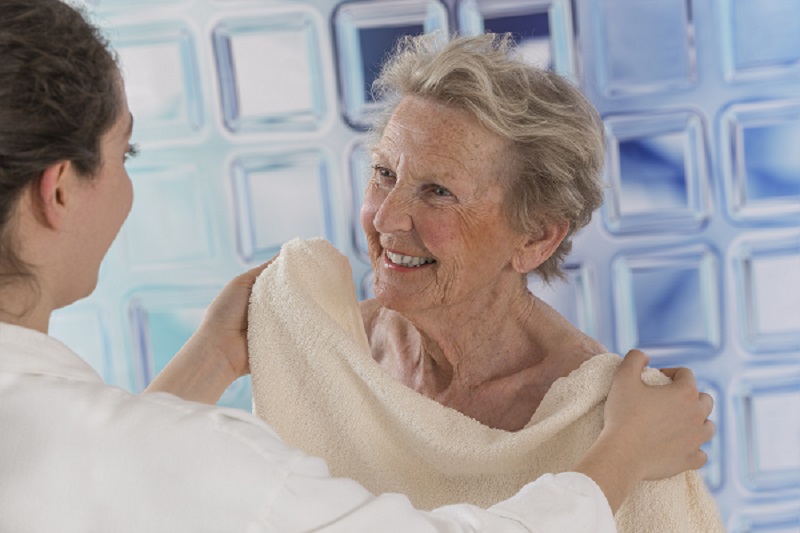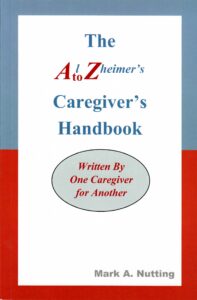How can you change the inevitable protest of bathing? Personal and professional caregivers for those living with dementia report their biggest challenge is assisting the person with bathing.
A daughter once came to me with tears in her eyes stating, “I can’t do this anymore.” She went on to explain the difficulty she experiences when attempting to assist her mother with bathing. Every attempt resulted in yelling, arguing, and crying. This was obviously a traumatic experience for both. In order to understand the whole situation, I visited the home. I looked at the physical space of the bathroom and evaluated each step of their process. The bathroom was very small and dark. It had a traditional tub shower and no grab rails. The daughter was very commanding, rushed her mother, and was doing the tasks for her. The daughter’s goal was to get through this painful process quickly to assure her mother had good hygiene. The ultimate result created feelings of stress, anxiety, anger, frustration, sadness, and worthlessness for her mother.
My recommendations were to make modifications to the bathroom. Changing the lights to be brighter offered her mother increased vision. Changing the shower head to a hand-held shower offered her mother a sense of control. Installing grab rails and a tub seat with a back offered her mother a sense of security and lessened her fear of falling. I educated the daughter on “excess disability.” She was unintentionally taking away her mother’s independence to participate in her own self-care. Her mother only needed one-step cueing and in the process of rushing, she just did everything for her. This created feelings of being a burden and helplessness. I also offered ways in which she could uphold her mother’s dignity and decrease her feelings of vulnerability through specific strategies of care. One of the things her mother likes very much is music and singing along. I suggested that she purchase a CD player and sing-a-long music CD’s and place it in the bathroom, playing it through the bathing process.
The daughter reported that now, they were actually enjoying the time together. The fear, anxiety, and stress were eliminated. Utilizing the strategies she learned, she successfully created the opportunity for her mother to experience positive feelings. Her mother was now participating in her own self-care. She was happy, feeling in control, and feeling less burdensome. They now enjoyed singing together while successfully getting her bathed.
Modification and education surely proved positive in this scenario.







